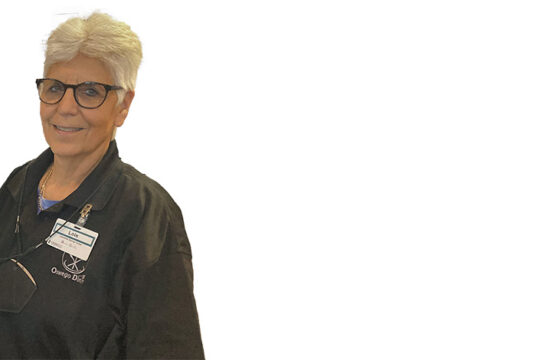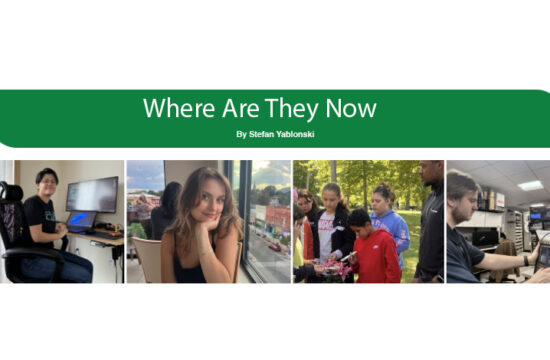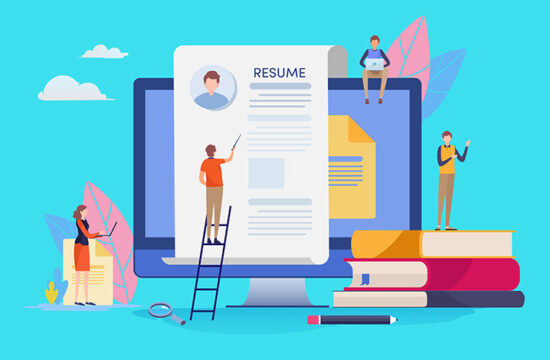Career coach and Oswego alum shares what you need to know
By Ken Sturtz

Interviewing for jobs can be a confusing and nerve-wracking experience, especially if you don’t have much experience with interviews. But with practice and preparation, you can put yourself in a much better position, said Mary Buske, a career coach with Suits You Coaching.
Buske, a SUNY Oswego alumna who regularly works with college students and recent graduates, offered the following advice:
Realize that expectations are changing
It used to be that most employers insisted you to wear your Sunday best to an interview. The expectations regarding interview attire were already evolving, but the COVID-19 pandemic accelerated those changes.
Buske suggests finding out how people dress at the company you’re interviewing with and using that as a reference point. Different industries also have different expectations. A financial institution is likely to expect formal attire while a tech startup might be fine with casual dress.
“The more you can tailor yourself to who you’re interviewing with the better, even how you dress,” she said. “You want to make them see that you fit with their culture.”
When in doubt, business casual is usually appropriate. Dress pants with a blouse or sweater could work. Be sure your clothing is clean and wrinkle free, and leave jeans and hooded sweatshirts at home.
“You’d rather be slightly overdressed rather than underdressed,” Buske said.
Expectations about piercings, tattoos and hair styles are also changing. Ideally, you want your personal style to match the company’s culture. Sometimes a company’s dress code will vary depending on whether a position is customer-facing, which is something to research.
Ultimately, if you feel like you have to hide something about your appearance to get the job, you may want to consider if you really want to work for the company long-term.
Use the job description to give yourself an advantage
When scouring job listings, many people only glance at the lengthy job descriptions. But for college students especially, those detailed descriptions can be useful when preparing for an interview. If you think of the job description like a grading rubric for a college class, it can help make you feel more confident of success.
“Those are the topics that are most likely to show up in the interview,” Buske said.
Read through the job responsibilities in the job description and treat them like a roadmap to the job. Think of examples you can use to demonstrate that you have the skills or qualities they’re looking for.
That preparation will automatically give you an edge and will show the employer you’re taking their hiring process seriously. And it’ll mean you’re much less likely to be tripped up by an unexpected interview question. And don’t be intimidated if your experience doesn’t match up perfectly with a job description.
“A job description is, realistically, a company saying what their most ideal candidate would be,” Buske said. “So, you don’t need to meet every single component of a job description.”
Remember that the employer needs to fill the position
It’s easy to be intimidated going into a job interview. The employer is the one setting up your interview and you’ll likely meet with several of their people.
“But they need to fill the job,” Buske said. “The employer is not the only person who has power in the interview.”
It’s not just about a company deciding if they like you, she said. The interviewee has value and is an important part of the process. A better way to think of the interview is as a learning experience for you to find out more and decide if you like the company and the position.
It’s also important to realize that if an employer offers you a job, accepting the offer isn’t always the right decision. For college students in particular, getting a job offer can be extremely exciting and the temptation is often to say yes to the first offer that comes along.
“Just because you interview somewhere, and maybe you interview and get a job offer, it doesn’t mean you have to say yes,” Buske said.
Ask thoughtful questions during the interview
Employers are often wary of someone in an interview who doesn’t have any questions. They might see it as a sign of disinterest or that you haven’t done your homework.
Asking thoughtful questions is a great way to show a company that you’re interested in them, Buske said, and it will help you make an informed decision. She recommends giving some thought to the things that are important to you and asking about them during the interview.
Suggestions include asking about the company’s long-term plans and, for college graduates, asking how they plan to train you for the position and help you grow in your new role.
Salary is an important consideration, but the time to talk about salary is generally when there’s a job offer on the table, Buske said. Asking about salary right off the bat could give an employer the impression that you’re only there for the money.
“You want them to really like you before you put your foot down on salary,” Buske said. “At that point they’re already envisioning you in their company.”
End on a positive note and be persistent
Ending an interview can be awkward. A handshake is common but don’t worry if your interviewers skip it. The most important thing when leaving an interview is to thank everyone for their time.
Also, remember that looking for a job is a process and getting a no doesn’t mean you’ve failed.
“Because you could have been candidate number two and they’re not going to tell you that,” Buske said. “You could have done everything right.”
People get better at interviewing with experience. If you find yourself continuing to struggle, practice as much as possible. Some people like to write out questions and answers, others prefer to talk things through with family members.
Buske said a career coach can be a tremendous resource and provide better feedback during mock interviews. Most colleges also make a career services center available to students. Take advantage of that resource. And don’t give up.
“Getting a job is a journey,” Buske said. “You’ve got to keep going even when it’s hard.”












